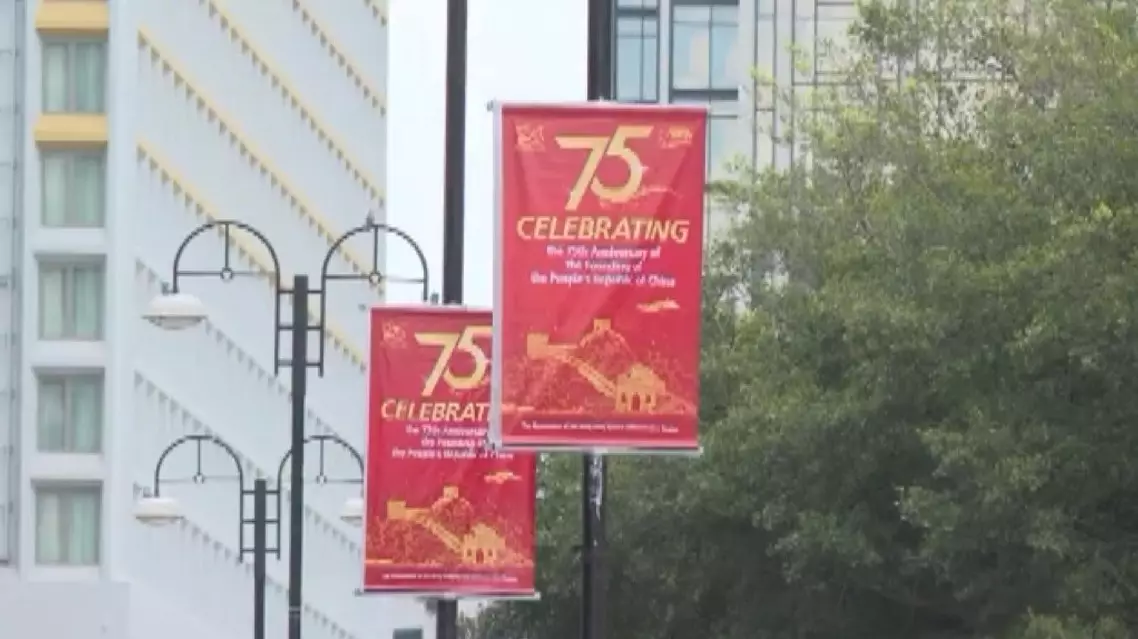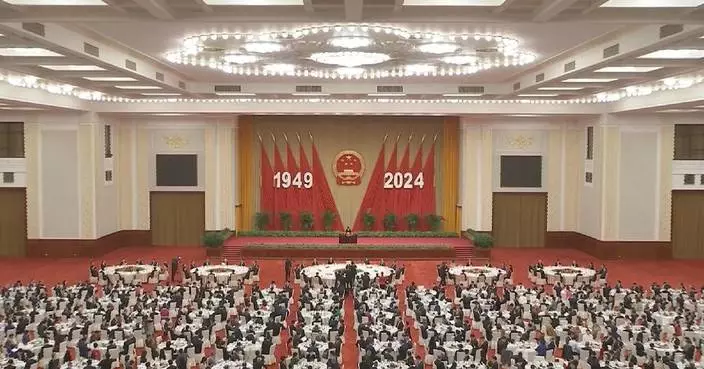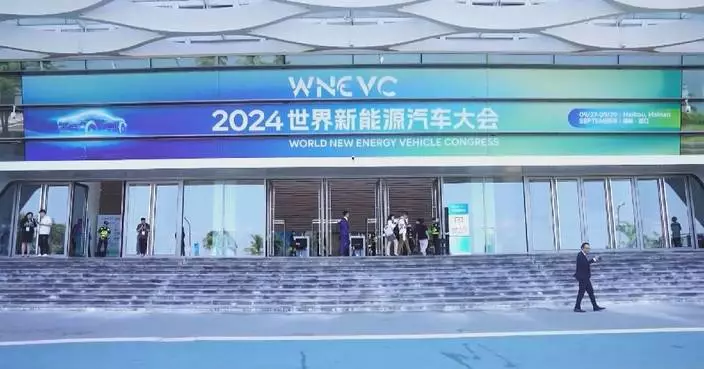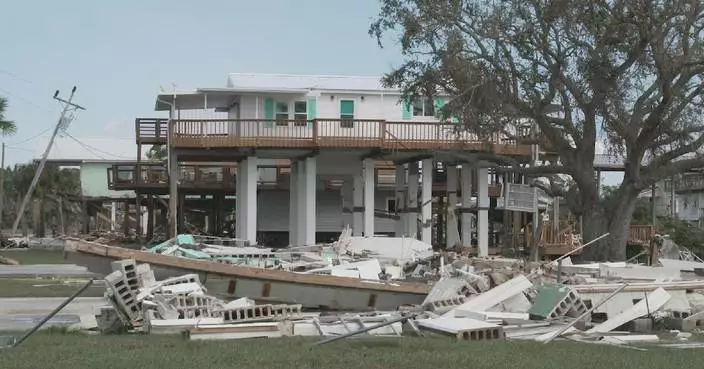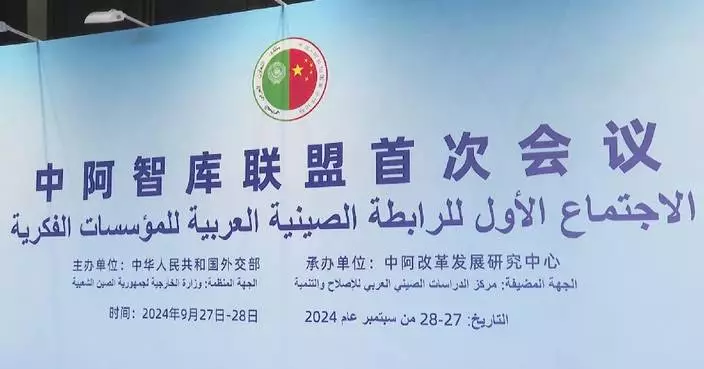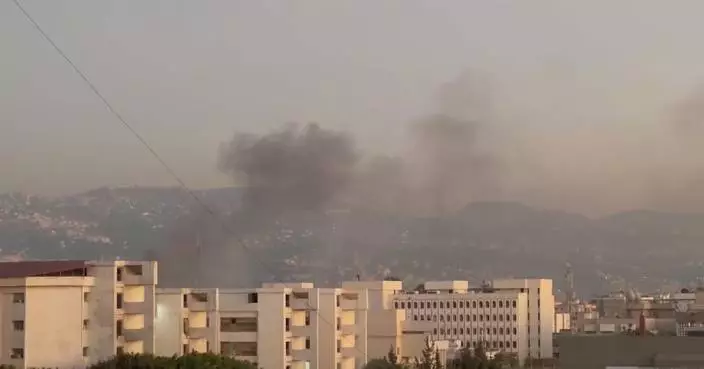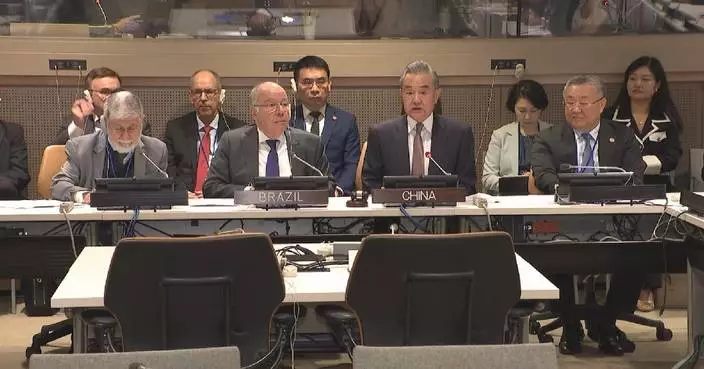Chinese President Xi Jinping's vision and commitment to improving air quality has made Beijing's green transformation journey yield fruitful results after more than 10 years of persistent efforts.
During the 2024 Two Sessions, Xi recalled his childhood memories of Beijing, which at the time was battling heavy air pollution.
"There were frequent sandstorms. In spring, we wore masks, and they would be covered in dust after taking them off. After spending a day outside, you'd find a layer of dirt on the floor at home. Back then, it wasn't PM2.5, it was PM250!" Xi said. Air pollution is one of the most significant environmental threats to human health. In 2013, Beijing's air quality levels were alarming, with smog an inescapable part of residents' lives.
Since early 2013, Beijing resident Zou Yi has taken photos of the sky with his phone every day, regardless of the weather. He has now documented the sky for more than 4,000 consecutive days.
"At the time, there were two weeks of severe pollution in January, and the blue sky was nowhere to be seen," said Zou.
In September 2013, the State Council issued the "Action Plan on Prevention and Control of Air Pollution" which put forward 10 measures to improve air quality and identified the Beijing-Tianjin-Hebei region, the Yangtze River Delta and the Pearl River Delta as key areas for pollution control.
To ensure better air quality, various departments in the Beijing government coordinated, resulting in clear skies during the event.
"Some say that the blue sky over Beijing now is just 'APEC Blue' -- beautiful but short-lived. It will disappear once the summit is over. I hope and believe that with persistent efforts, 'APEC Blue' can be sustained," said Xi while addressing the APEC welcome banquet on November 10, 2014.
Since the introduction of the State Council's action plan, the Beijing-Tianjin-Hebei region has undergone major reforms to address air pollution.
"From 2013 to 2015, throughout this process, we could feel the efforts made by the nation and society at large. Everyone was striving for this goal. The country was working on pollution control and environmental protection. You could sense people's longing for a major change, hoping for blue skies every day. This continuous effort and anticipation, year after year, is what motivated me to continue," said Zou.
"The State Council's action plan has a very clear objective: to address the severe PM2.5 pollution issue. We have identified key areas and, for the first time, set targets for the reduction of PM2.5 in these areas. Additionally, we have outlined several directions for control measures, including reducing coal use, controlling vehicle emissions, and managing dust pollution," said Zhang Haolong, deputy director of Atmospheric Environment Department, Ministry of Ecology and Environment.
"PM2.5 is complex in composition and has many sources. Given the numerous sources, managing it involves a wide range of fields and industries. It is crucial to determine which aspects to focus on in different regions and industries," said Hu Jingnan, director of Institute of Atmospheric Environment, Chinese Research Academy of Environmental Sciences.
In November 2013, Hebei Province dismantled 10 blast furnaces and 16 converters from eight steel companies, reducing steel production capacity by over 10 million tonnes.
In addition to reforming the steel industry, energy transition has been a crucial focus. The Beijing-Tianjin-Hebei region has increased efforts to phase out older vehicles, promote the use of electric and low-emission cars, and enhance emissions standards and inspection systems.
"In recent years, we have vigorously promoted the shift from road to rail transport in the Beijing-Tianjin-Hebei region. Essentially, all coal transportation at ports and terminals around the Bohai Sea has transitioned to rail. Our country has become the fastest-growing nation in the world for the development of new energy heavy trucks," said Zhang.
"In 2018, the rate of excessive emissions detected during on-road inspections was as high as 15 percent. By 2023, this rate had dropped to around 2.5 percent. Data from January to April 2024 suggests it may reach 2 percent. The emissions situation for vehicles on the road has significantly improved," said Su Xuetian, member of the Beijing Comprehensive Environmental Protection Enforcement Brigade.
As well as reforms in heavy industry and clean energy, China has implemented measures in clean heating and coal-fired power, contributing to more frequent blue skies over Beijing.
The Atmospheric Environment Research Institute of the Chinese Research Academy of Environmental Sciences has tracked air quality over the past decade using filter membranes, visually recording improvements each year.
"Here you can see the variation in outdoor PM2.5 filter membranes that we have collected, and it's quite obvious. Look, these two are from the autumn and winter seasons of 2013 and 2014, and then 2017, this one is from 2019, and this one is from the autumn and winter of last year," said Ren Yanqin, associate researcher at the Chinese Research Academy of Environmental Sciences.
From January to July 2024, Beijing had 150 days of good air quality, with a good air quality rate of 70.4 percent. Heavy pollution occurred on only one day, and that was due to external dust storms.
"It's nearly impossible for any city to achieve this in such a short time, but Beijing has made it. This reflects the success of China's 'battle for blue skies,'" said Zou.
As Beijing's skies were transformed, the city advanced both economic and environmental goals.
"Preliminary estimates suggest that in the first decade of air pollution control, the process directly drove approximately 4 trillion RMB in social investment, boosted GDP growth by around 5 trillion RMB, and created approximately 3 million non-agricultural jobs," said Zhang.
"I read some article about Xi Jinping. President Xi stressed about ecology. Ecology means the relation between human and nature. It is a very vast thing. So we protect the people, we protect the Earth, and we protect the ecological system. So I think Xi Jinping, the president, is (a) very far-sighted leader. So he stressed the ecological (aspect) and lucid mountain and waters," said Yogesh Bhattarai, Nepal's former minister of Culture, Tourism and Civil Aviation.
"When I come to China -- it is like my fifth time, maybe, in China. I see everywhere greenery. Even in the middle of the cities, like the downtown, we can see so many trees, so many parks. (It) is (a) very good thing. So, in my observation, Chinese leaders (have placed) more emphasis about the nature. There (try to create) aware(ness) (among) the people about climate change. It is (a) very good thing," said Bhattarai.
"You see more people outdoors now, and children are happier. I think the sensitivity to air quality is shared by everyone, regardless of age or gender. We still need to push forward, making the sky bluer, the water clearer and the land greener," said Zou.
Xi delivered a speech at the opening of the International Horticultural Exhibition on April 28, 2019, emphasizing the importance of green transformation.
"Lucid waters and lush mountains are invaluable assets. Improving the environment is a form of productivity. A healthy ecology contains infinite economic value and can continuously generate comprehensive benefits, leading to sustainable economic and social development."
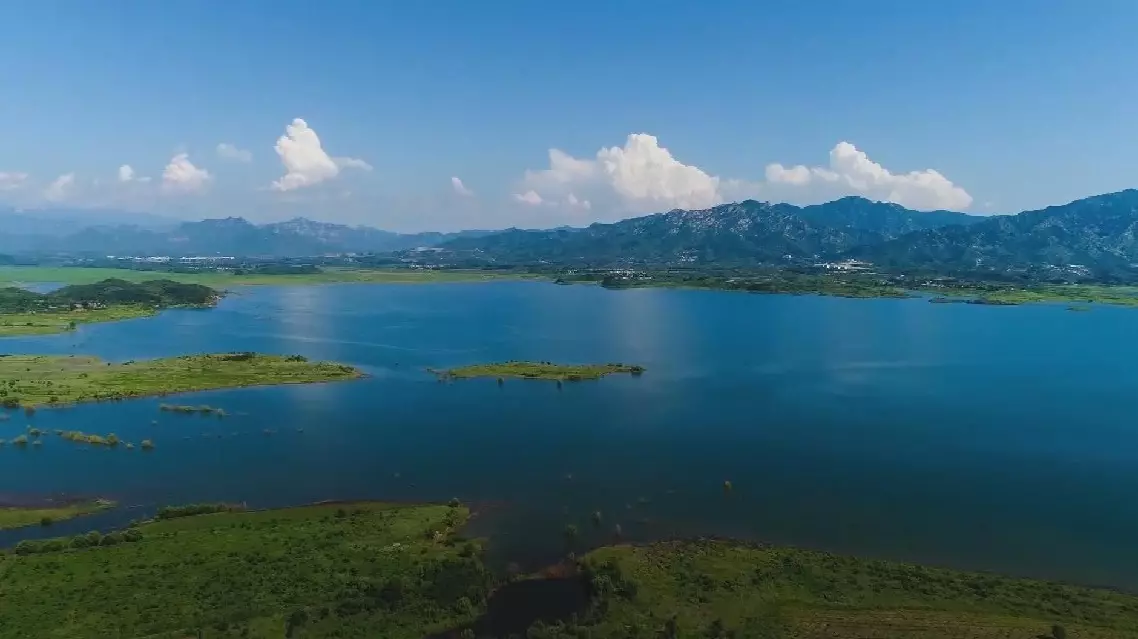
Beijing's air quality sees major improvement as conservation efforts pay off


